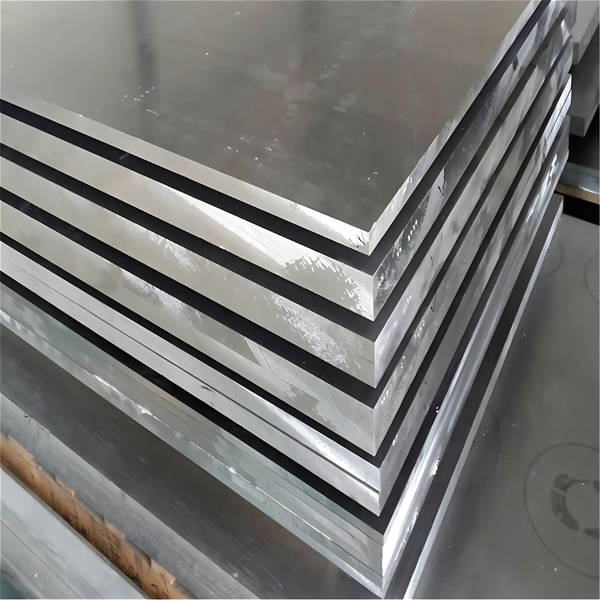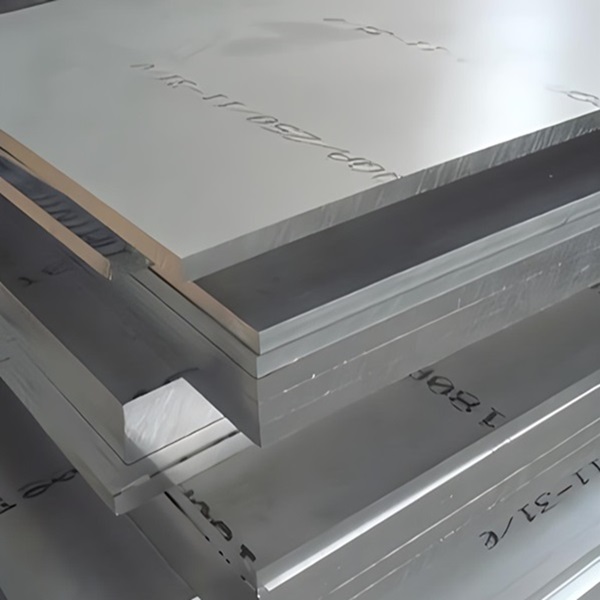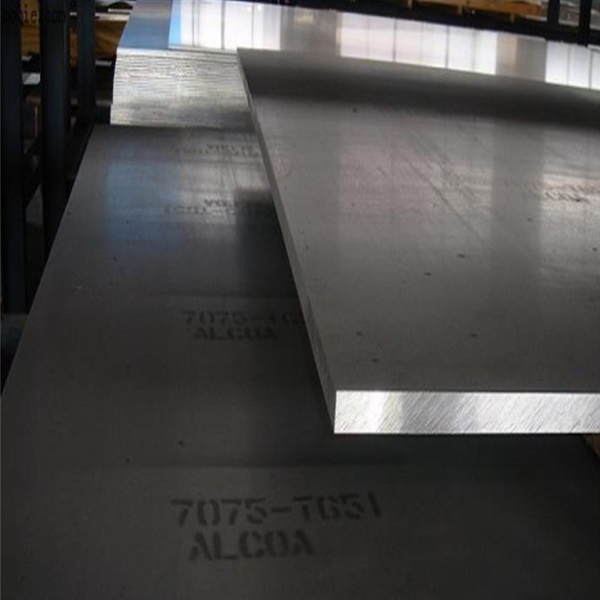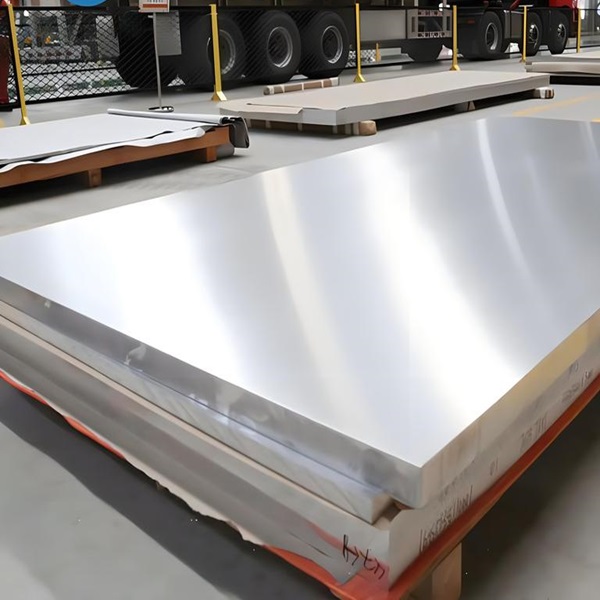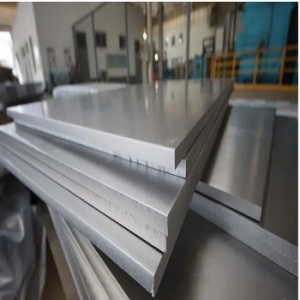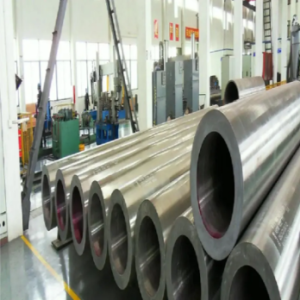aerospace aluminum plate is a high-strength, high-hardness aviation aluminum plate that is commonly used to manufacture aircraft structural parts.
Description
aerospace aluminum plate or aviation aluminium plate is a high-strength, high-hardness aviation aluminum plate that is commonly used to manufacture aircraft structural parts and other applications that require high strength and durability.
Features of 7175 T351 Aerospace aluminum plate:
1. Composition: 7175 T351 aviation aluminum plate is mainly composed of aluminum, zinc, magnesium and titanium and other elements, of which the aluminum content is about 7.5%.
2. Strength and hardness: Due to its special composition and heat treatment process, 7175 T351 aviation aluminum plate has high strength and hardness. Its tensile strength can reach more than 520MPa, and its hardness is also high.
3. Corrosion resistance: After special surface treatment, 7175 T351 aviation aluminum plate has good corrosion resistance and can withstand the influence of various harsh environments.
4. Processing performance: 7175 T351 aviation aluminum plate has good processing performance and can be made into parts of various shapes and sizes through cutting, bending, drilling and other processing processes.
5. Application fields: Due to its excellent performance, 7175 T351 aviation aluminum plate is widely used in aerospace, military, automotive and other fields to manufacture key components such as aircraft fuselages, wings, and landing gears.
In short, 7175 T351 aviation aluminum plate is a high-quality, high-performance aluminum plate material that can meet various high-demand application scenarios.
The popular aerospace aluminum alloy are
7075 T651 2324 T3/T351J
7150 T7751 2024 T3
7085 T7651 2524 T351
7050 T7451 2017A T4/T451J
7055 T7751 Alcad 2024 T3
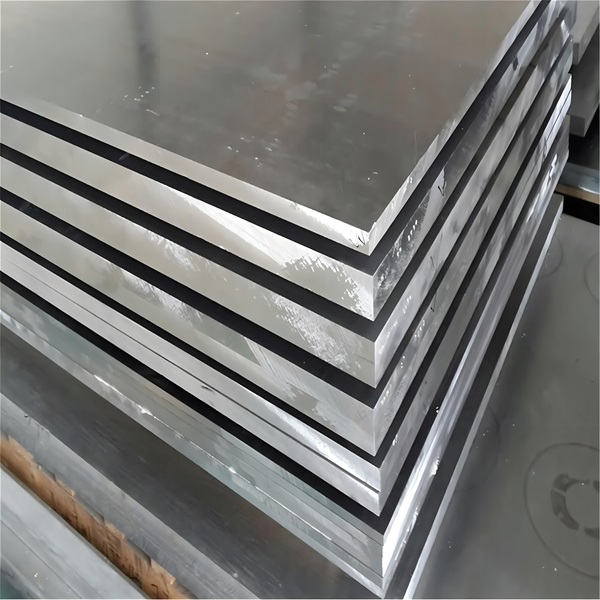
How to Weld 7175 T351 Aerospace Aluminum Plate?
Welding 7175 T351 aerospace aluminum plate requires precision and careful execution to ensure a strong and reliable weld. Here are the steps to weld 7175 T351 aerospace aluminum plate:
1. Safety Precautions: Before starting the welding process, ensure that you have the necessary safety equipment, including welding gloves, helmet, and protective clothing. Make sure you are working in a well-ventilated area or use a fume extraction system to remove any harmful fumes.
2. Prepare the Workpiece: Clean the aluminum plate thoroughly using a wire brush or chemical cleaner to remove any dirt, grease, or oxide layers. Ensure that the plate is completely dry before welding.
3. Select the Right Welding Method: There are various welding methods suitable for welding aluminum, including TIG (Tungsten Inert Gas) welding, MIG (Metal Inert Gas) welding, and laser welding. TIG welding is generally preferred for aerospace applications due to its precision and control.
4. Set Up the Welding Machine: Adjust the welding machine settings according to the thickness of the aluminum plate and the type of welding method you are using. Consult the manufacturer’s guidelines for the specific settings required for welding 7175 T351 aluminum.
5. Prepare the Weld Joint: Determine the type of joint you will be welding, such as a butt joint, lap joint, or T-joint. Ensure that the edges of the aluminum plate are properly beveled or chamfered to allow for better penetration and fusion during welding.
6. Welding Technique: Start by positioning the TIG torch or MIG gun at a 10-15 degree angle from the vertical plane, aiming the heat towards the thicker section of the joint. Maintain a steady travel speed and move the torch or gun in a controlled manner along the joint, ensuring proper fusion and penetration.
7. Post-Weld Inspection: After completing the weld, inspect it visually for any defects, such as cracks or porosity. You can also perform non-destructive testing methods, such as dye penetrant testing or ultrasonic testing, to ensure the quality of the weld.
8. Post-Weld Treatment: Allow the weld to cool naturally to room temperature. Once cool, you can remove any excess weld material using a grinder or file, if necessary. You may also choose to perform post-weld heat treatment to relieve any residual stress and improve the mechanical properties of the weld.
Remember, welding 7175 T351 aerospace aluminum plate requires expertise and experience. If you are not confident in your welding skills, it is recommended to seek the assistance of a professional welder or welding engineer.
Due to its good performance in physical properties, the aluminium plate is widely used in different industries, some of which include:
| Industry | Alloy |
| Aerospace | 7075 T651 2324 T3/T351J 7150 T7751 2024 T3 7085 T7651 2524 T351 7050 T7451 2017A T4/T451J 7055 T7751 Alcad 2024 T3 |
| Ship Building | 6082 T6/T651/Tl12 5754 H112 5052 H32/0 5083 H321/H116/H112/0 5086 0/H116 |
| Automotive | 6016 T4/T4P 5182 0 5754 0 6014 T4/T4P 6111 T4/T4P 7075 T4 6451 T4/T4 |
| Foil Stock (Coil) | 1235 H14/H16 8011 H14/H16 8079 H14/H16 8021 H14/H16 |
| Transportation, Construction, Hardware, Bottle Cap, Containers | 1060 H14/H16/H24/H26/0 6063 T4/T6/T651 3003 0/H1x/H2x 6061 T4/T6/T651 5052 H2x/H3x/0/H111/H112 6082 T4/T6/T651 5083 H3x/H112/H111/0 8011 H14/H16 5086 H3x/H112/H111/0 5182 0/H111/H112/H34 5454 0/H111/H112/H32 |
| Laptop, Ipad, Mobile Phone, 3C Material, Anodizing | 5252G H32/H34/H36 6061G T4/T6/T651 6063G T4/T6 5052 H32/H34/H36 5182 H34 |
| Can Body, Can End, Tap-Strip | 3004 H19 5182 H19 3104 H19 5052 5182 H48/H19 |
| Mold and Machinery | 2024 T351 6061 T651 5052 0/H111/H112 6063 T651 5083 0/H111/H112 7075 T651 6082 T651 |
Certification :IRIS,ISO9001,ISO14001,Aerospace Grade AS9100.


